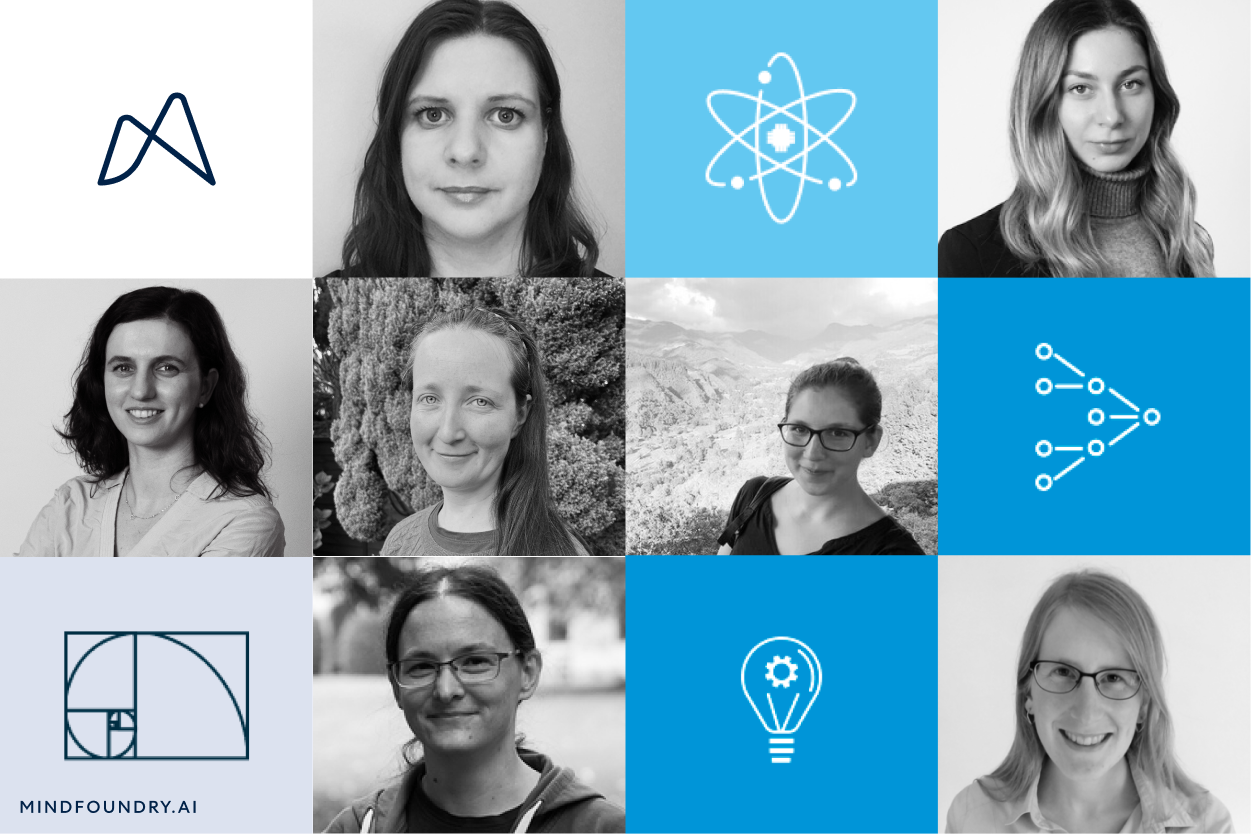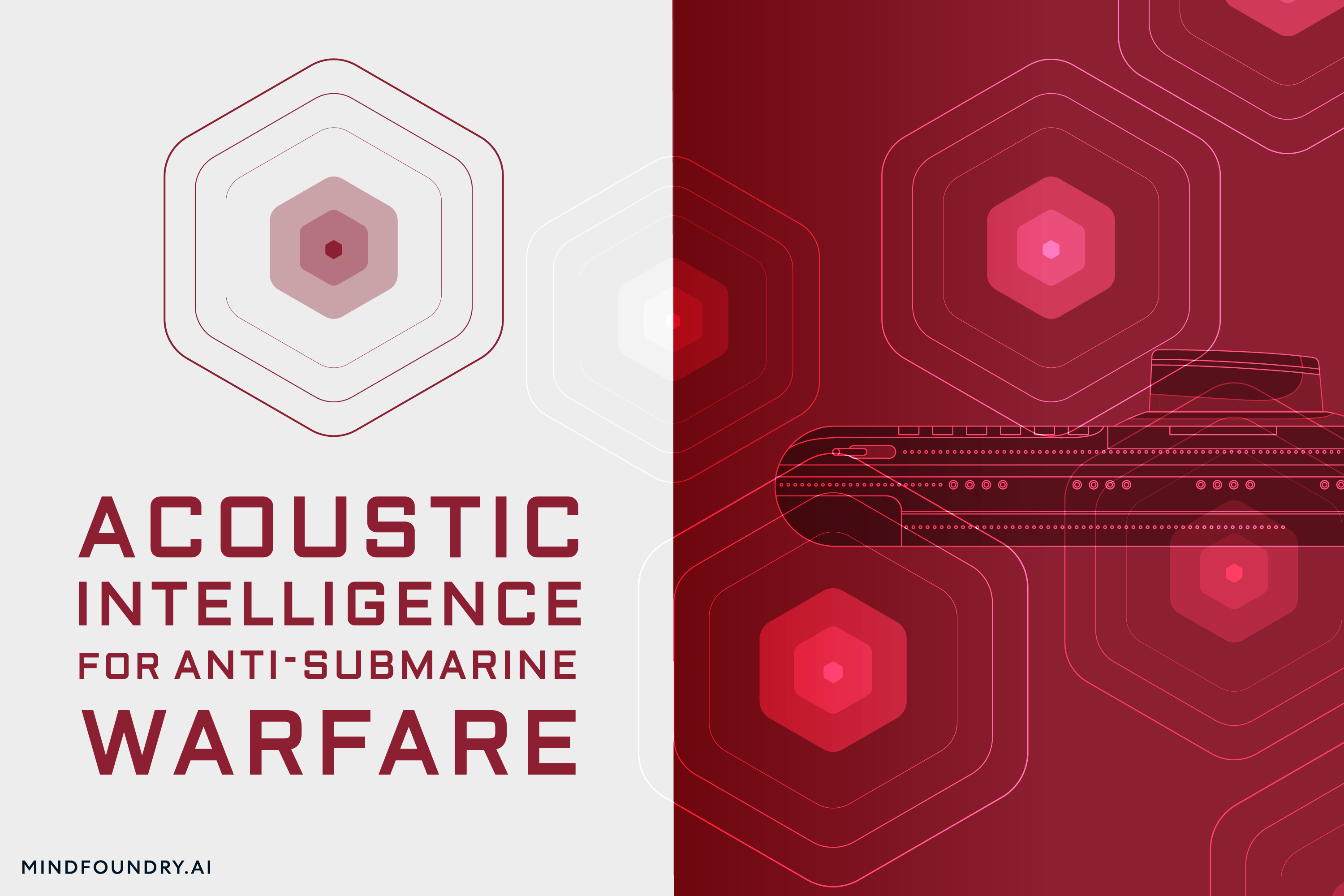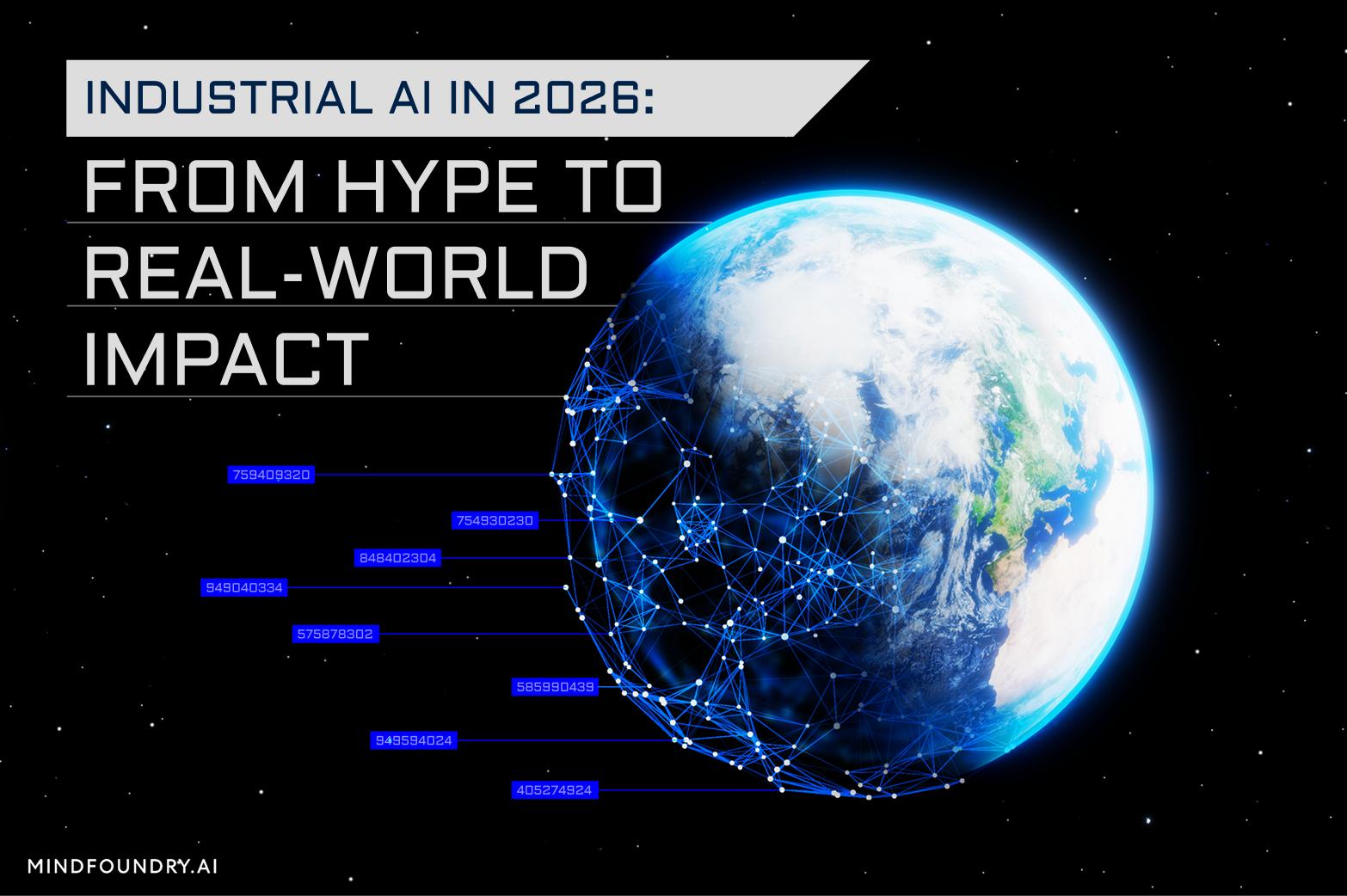AI-enabled Acoustic Intelligence for Anti-Submarine Warfare
From detecting hidden threats to defending critical underwater infrastructure, Anti-Submarine Warfare (ASW) is a cornerstone of national security. AI...
6 min read
Mind Foundry
:
Updated on June 24, 2024

In 2023, women comprised only 13.7% of the global engineering workforce. To commemorate International Women in Engineering Day, we are proud to share the stories of our own trailblazers of AI innovation who have been defying stereotypes, knocking down barriers, and inspiring everyone around them from the moment they joined our team. They spoke with us to share their experience of working at Mind Foundry, the nature of their role, and what first inspired them on their journey to becoming scientists and engineers.
I am a Senior Research Scientist at Mind Foundry with a background in pure mathematics and probabilistic Machine Learning. I joined Mind Foundry eight years ago when the company was just getting started. Back then, we were a small group of scientists and engineers, and it has been incredibly rewarding to watch the company grow and evolve. Despite our growth, we've managed to maintain the same healthy culture and strong ethics that we had at the beginning.
As a scientist, I'm responsible for finding and developing the right approaches to solve a variety of complex problems. I'm particularly excited about the new technologies that have emerged in machine learning. There's always something new to learn, and I love exploring different ways to approach problems.
Why did you choose to pursue this career?
Since I was a child, I’ve always been fascinated by the beauty of symmetries and proportions in nature. Early on, I realised that geometry and numbers were great tools to describe this beauty. To me, mathematics is the language of the universe, universal and objective. It helps you understand and explain things from first principles, which is a powerful concept.
I use an analytical approach to problem-solving, which I find very effective. I like to break down problems into their most basic components and then push the boundaries of AI by integrating software solutions with original research. It's important to me that the solutions we develop are not only innovative but also explainable. This way, we can ensure that our technology is accessible and understandable. One of my favourite parts of working at Mind Foundry has been witnessing the company's growth while keeping its core values intact. It’s been a pleasure to be part of a team that’s committed to both innovation and maintaining a positive, ethical work environment. It’s a rare and wonderful combination.
I joined Mind Foundry over two years ago, and I now lead the delivery team in our Defence & National Security sector as the Head of Applied Machine Learning. My role involves supporting our delivery and go-to-market teams to identify, win, and deliver critical outcomes for customers. Whilst I don’t often get to work directly on projects anymore, I get to see and discuss the wide range of cutting-edge research and fantastic work our teams do to solve complex, real-world problems every day.
Why did you choose to pursue this career?
I’ve always had an interest in science and technology. However, I was inspired to pursue a career in this area after attending a summer school at the University of Southampton at 17. I discovered a passion for research through my undergraduate degree in Astrophysics and my doctorate in Radio Astronomy. Mind Foundry enables me to apply this passion whilst also helping customers with solutions to high-stakes problems that will significantly impact the Defence & National Security industry.
I am a Senior Software Engineer and have been at Mind Foundry for nearly 3 years, working primarily with data and back-end systems in the Insurance sector. Despite focusing on one sector, my work is varied, from building data pipelines for detecting home insurance fraud and investigating how the driving behaviours of the elderly affect their risk to building platforms to enable other engineers and scientists to work more efficiently and securely with our customers' data. What I enjoy is the fact that there are always a great many interesting problems to solve.
Why did you choose to pursue this career?
I just kept following my interests, and this is where they took me. In school, I enjoyed maths and physics, particularly in solving practical problems, so I chose to study mechanical engineering at university. Through the computing modules at university, I found an interest in programming. I liked how rewarding it can be to be able to solve a wide range of problems comparatively quickly.
My first few roles as a programmer gave me an interest in data and what we can learn from it, which then led me to work in the AI space. But it was the realisation of how damaging AI could be when applied without proper care that led me to choose Mind Foundry.
I joined Mind Foundry 2 years ago and am currently a Senior Software Engineer. I’m responsible for the technology side of the Insurance pricing team, where my role involves a blend of collaboration and technical expertise. I work closely with Product Managers, Designers, and Engineers to develop high-quality solutions for our Insurance customers. This often includes tailored, risk-based insurance packages that are key to providing affordable Insurance to end users.
Why did you choose to pursue this career?
My interest in software engineering began early on. As a naturally curious and introverted person, I’ve always enjoyed observing and pondering how things work. Understanding human behaviour and improving how things work fascinated me. Software engineering was a natural extension of these interests, allowing me to constantly learn and build solutions that improve people's lives. I love the challenge of digging deep into problems and creating simple, elegant, and robust solutions.
What attracted me to Mind Foundry was the company’s commitment to the responsible use of technology to create social impact, coupled with an exceptional culture. I have found that the stimulating and supportive environment that Mind Foundry has created, filled with highly skilled and character-driven people, fosters growth and innovation and makes it the perfect place to thrive.
I joined Mind Foundry nearly a year ago as a Machine Learning Research Scientist. Since then, my role has involved applying Machine Learning and computational methods to solve problems in the Defence & National Security domain. For example, I recently worked on a really interesting project that involved using Machine Learning methods to identify anomalies and classify various complex signals.
Why did you choose to pursue this career?
As a child, I enjoyed solving puzzles, things like— “If you have 12 identical balls in size and appearance but one has a different weight, how can you determine which one it is and whether it is heavier or lighter with only three uses of a balance?”—and was motivated to study mathematics because of its objectivity. After studying mathematics, I became interested in its application to solving real-world problems and found that solutions can often come from combining knowledge from different fields.
I chose to work at Mind Foundry because I enjoy researching new topics and learning about different algorithms. I also enjoy implementing and adapting these algorithms to apply relevant statistical or Machine Learning methods to a specific problem.
I joined the Mind Foundry team as a Machine Learning Scientist earlier this year. My role involves developing AI algorithms within the Insurance sector. For example, I recently worked on a project that focused on identifying fraud in home insurance. I enjoy analysing problems and creating innovative solutions and have found it inspiring to be part of a company fostering a continuous learning culture.
Why did you choose to pursue this career?
I have always been driven by a passion for solving challenges and addressing real-world problems. Mathematics and technology have always been my preferred tools for understanding and explaining the world around me. Today, I apply this analytical approach to advancing AI in the Insurance industry, constantly seeking innovative solutions and eager to positively impact people’s lives through my work.
I have been at Mind Foundry for over 2 years as a Senior Machine Learning Scientist and am now lead the Delivery Team for our work in the Civil Infrastructure sector. I have a mixed background in mathematics, civil engineering, and computer vision. My current focus is developing solutions to place the latest computer vision and AI algorithms at the fingertips of bridge inspectors, engineers and asset managers.
Our team is a diverse and highly technical mix of Machine Learning Scientists, Software Engineers, and civil engineering domain experts. Together, we work with national infrastructure asset owners and global civil engineering consultants to customise the latest technology to best fit and support their needs.
Why did you choose to pursue this career?
I am 100% “a geek” through and through. In my professional life, this means that I love the technical and the complex and that I am always on the lookout for a good problem to solve. “Good” for me means more than pure intellectual stimulation; I need to see that the work is creating real-world value, too. This explains my lifetime interest in engineering and as a criterion for satisfaction, which has historically resulted in my rejecting some projects.
My current work towards maximising the service life of bridges and preventing catastrophic collapses certainly ticks all the boxes of geeky and useful. At Mind Foundry, I have the perfect environment to thrive among highly intelligent and like-minded individuals who are as humble and approachable as they are talented.
At Mind Foundry, we believe that building a diverse team with a wide range of knowledge, experience, and perspectives will help us achieve our mission. That mission is to bring humans and AI together to solve the world’s most important problems, and the women in this piece are all playing a vital role in getting us there.
If you’re interested in joining our team, check out our available positions here.

From detecting hidden threats to defending critical underwater infrastructure, Anti-Submarine Warfare (ASW) is a cornerstone of national security. AI...

The UK-USA Technology Prosperity Deal sees overseas organisations pledging £31 billion of investment into UK AI infrastructure. As AI investment...

Industrial AI is increasingly coming to the fore in physical industries, but achieving measurable real-world impact requires careful consideration...